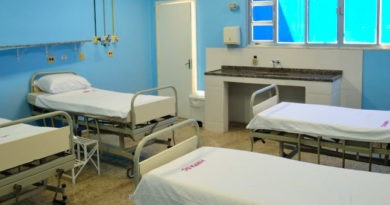Diretor-geral da OMS destaca queda no número de mortes por COVID-19
[Foto: WHO / Pierre Albouy]
O diretor-geral da Organização Mundial da Saúde (OMS), Dr. Tedros Adhanom Ghebreyesus, elogiou a continuidade da queda no número de mortes causadas pela COVID-19 durante a 15ª reunião do Comitê de Emergência do Regulamento Sanitário Internacional (RSI). Segundo ele, nas últimas 10 semanas, o número de mortes semanais relatadas foi o mais baixo desde março de 2020.
Ghebreyesus afirmou que essa tendência permitiu que a vida retornasse ao normal em muitos países e aumentou a capacidade dos sistemas de saúde de lidar com possíveis ressurgimentos e o peso da condição pós-COVID-19.
Apesar da boa notícia, o diretor alertou que ainda existem incertezas críticas sobre a evolução do vírus, tornando difícil prever a dinâmica futura de transmissão ou sazonalidade. A diminuição significativa da vigilância e sequenciamento genético em todo o mundo também dificulta a detecção de novas variantes e o acompanhamento das já conhecidas.
Acesso desigual às intervenções que salvam vidas continua a colocar milhões de pessoas em todo o mundo em risco desnecessário, principalmente os mais vulneráveis. Além disso, a fadiga pandêmica ameaça a todos.
Ghebreyesus destacou que, embora todos estejam cansados e doentes dessa pandemia, o vírus está aqui para ficar, e todos os países precisarão aprender a administrá-lo ao lado de outras doenças infecciosas.
Por fim, o diretor elogiou o lançamento do quarto Plano Estratégico de Preparação e Resposta à COVID-19, que esboça ações críticas em todos os componentes principais da resposta à pandemia. O plano inclui medidas como vigilância colaborativa, proteção comunitária, cuidados seguros e escalonáveis, acesso a contramedidas e coordenação de emergência.
A OMS espera que o plano possa ajudar a superar as desigualdades na resposta global à pandemia.
Confira a seguir a reprodução integral da sua fala.
Professor Houssin, members and advisors of the Emergency Committee, dear colleagues and friends,
Dr. Tedros Adhanom Ghebreyesus
Good morning, good afternoon and good evening, and thank you all once again for your commitment to the work of this Emergency Committee for more than three years.
In my opening remarks at your last meeting in January, I noted that the number of weekly reported deaths from COVID-19 was declining, following the spike in China after that country lifted restrictions.
It’s very pleasing to see that the downward trend has continued. For each of the past 10 weeks, the number of weekly reported deaths has been the lowest since March 2020.
This sustained trend has allowed life to return to “normal” in most countries, and has increased the capacity of health systems to cope with potential resurgences and the burden of post-COVID-19 condition.
At the same time, some critical uncertainties about the evolution of the virus persist, which make it difficult to predict future transmission dynamics or seasonality.
Surveillance and genetic sequencing have declined significantly around the world, making it more difficult to track known variants and detect new ones.
Inequalities in access to life-saving interventions also continue to put millions of people around the world at unnecessary risk, particularly the most vulnerable.
And pandemic fatigue threatens us all. We are all sick and tired of this pandemic and want to put it behind us.
But this virus is here to stay, and all countries will need to learn to manage it alongside other infectious diseases.
Yesterday, WHO published the fourth COVID-19 Strategic Preparedness and Response Plan, which outlines critical actions across all the core components of the response – collaborative surveillance, community protection, safe and scalable care, access to countermeasures, and emergency coordination.
My colleagues will provide more information on the global situation and the global response.
They will also provide information on the regulatory implications of the potential termination of the PHEIC.
My thanks once again to you, Professor Houssin, for your leadership.
And my thanks to each of the committee members and advisors for sharing your expertise, and for your dedication and commitment.
As always, the International Health Regulations will guide your deliberations.
I look forward to your advice.
I thank you.




